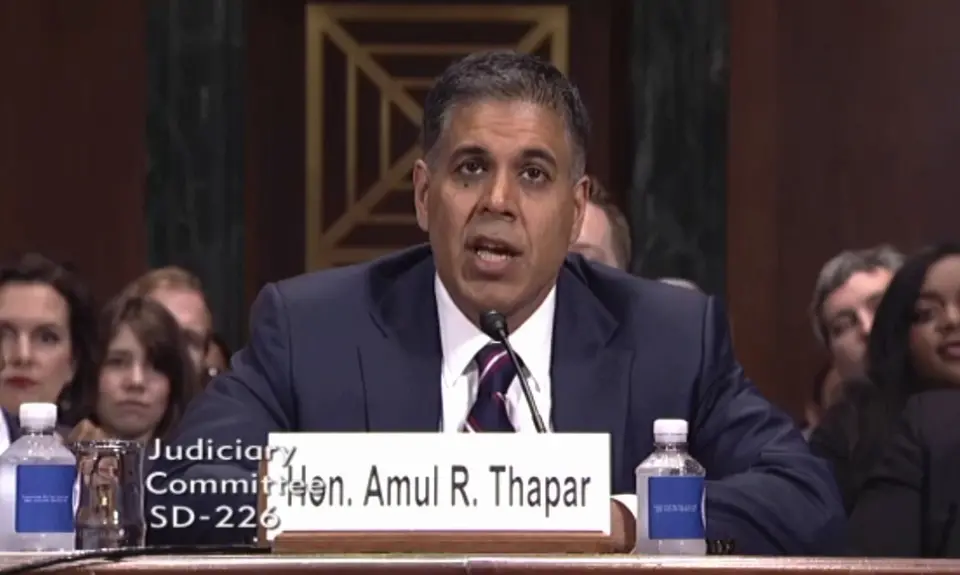“Confirmed Judges, Confirmed Fears” is a blog series documenting the harmful impact of President Trump’s judges on Americans’ rights and liberties. Cases in the series can be found by issue and by judge at this link.
Trump Sixth Circuit Judge Amul Thapar wrote a dissent that tried to affirm the dismissal of a complaint by a man suffering from mental health issues because of violent harassment by a guard, despite the majority ruling by a George W. Bush nominee that the man should be allowed to proceed with his claims. The June 2020 case was Small v. Brock.
Fletcher Darnell Small is representing himself in a case contending that, without provocation and on multiple occasions, a guard at the prison where he is confined “brandished a knife” and “threatened to kill” him. As a result, Small sought and received psychological treatment and counseling for mental and psychological distress and alleged that he continues to suffer such harm.
A district court dismissed the case and Small appealed. In a decision by Judge Julia Smith Gibbons, a George W. Bush appointee, the Sixth Circuit reversed. The majority ruled that although “verbal abuse and nonphysical harassment” of a prisoner does not violate the Eighth Amendment prohibition on cruel and unusual punishment, “unprovoked and repeated threats to a prisoner’s life, combined with a demonstrated means to carry out such threats,” as alleged by Small, do in fact “constitute conduct so objectively serious as to be ‘antithetical to human dignity’” contrary to the Eighth Amendment.
Judge Gibbons elaborated that the complaint contended that the guard had “no legitimate penological reason for repeatedly placing Small in fear of his life,” and that the force threatened and the resulting consequences clearly exceeded the “de minimis” standard required for prisoner claims. Based on established precedent, the majority explained, an incarcerated person like Small has “’the right to be free from the terror of instant and unexpected death at the whim’ of his jailors.”
Trump judge Amul Thapar dissented. Although he acknowledged that the allegations in the complaint are “troubling,” he asserted that what Small contended was done to him, even if true, did not constitute cruel and unusual punishment under the Eighth Amendment. He also maintained that, even assuming the majority was correct in ruling to the contrary, qualified immunity would protect the guard and the court should have dismissed the case for that reason.
The majority disagreed with Thapar. The dissent could “point to no conflict” between its ruling and prior precedent, Gibbons pointed out. As to qualified immunity, the majority noted that the district court had not yet addressed that issue and ruled that it would be improper for the appellate court to rule on qualified immunity before the district court did unless it was “clear from the complaint “ that the plaintiff could “present no evidence” that could overcome a qualified immunity claim, which was clearly not the case here.
As a result of Judge Gibbons’ majority opinion, Small will have the opportunity to have his claims heard, and incarcerated people in the Sixth Circuit have the right to be free from “the terror of instant and unexpected death at the whim” of guards. If it had been up to Thapar, however, both of these rulings would have been reversed.
Note: The initial draft of this post was prepared by PFAW legal intern Oliver Telusma
